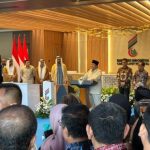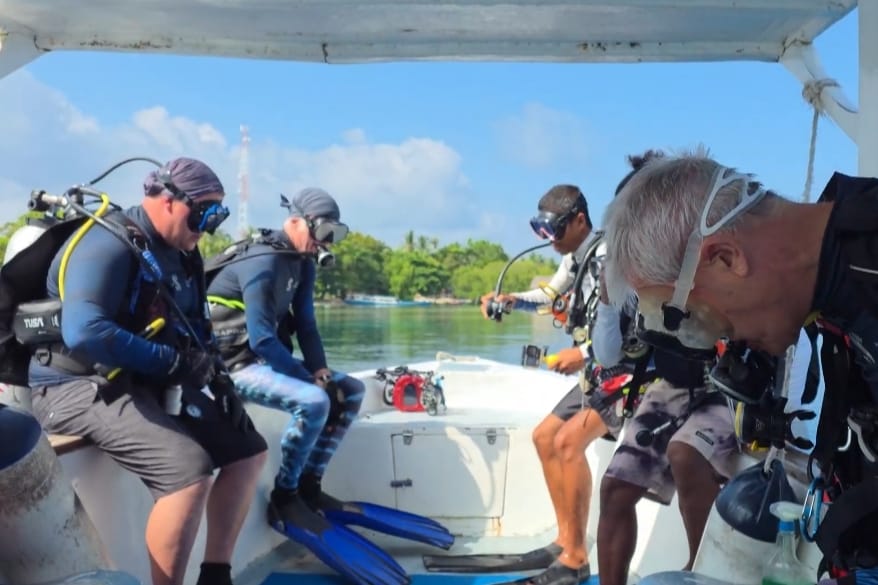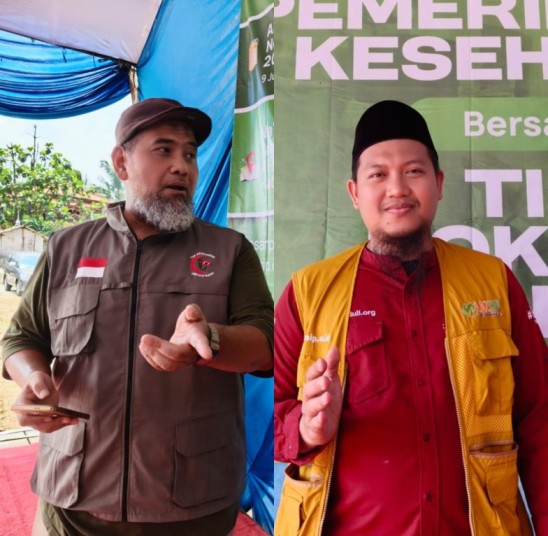RI-US to tighten maritime security ties: Should Bakamla also be benefited?

Indonesia and the U.S. agree to tighten their maritime security ties as top defense executives of the two countries, Minister Probowo Subianto and Secretary Mark T. Esper respectively, concluded their meeting in Washington recently.
Yet, no details available on how the commitment will be implemented. With the rising tensions in South China Sea due to China assertiveness in the water, however, it is logically predicted that the scope of the cooperation is the maritime domain awareness among other.
As a country with the most advanced MDA (Missile Defense Agency) capability, the U.S. is predicted to provide Indonesia with assistances (hardware, software, training) to improve the latter’s capacity in monitoring its vast water territory.
This apparently will be deployed to surveillance whatever maneuver carried out by the PLA (People’s Liberation Army) Navy assets – surface, submarine or aircraft – or the Chinese white hull, China Coast Guard, cutters in South China Sea.
The Indonesia Navy (TNI AL) consequently will be the main receiver of the tightened maritime security ties.
For that institution the planned U.S. support will boost its strength to conducting President Joko Widodo vision’s Global Maritime Fulcrum in which TNI AL gets more traction in it. Except the Navy, the GMF actually has also another agency to execute the program, namely the Maritime Security Agency or locally dubbed Badan Keamanan Laut or Bakamla for short.
The question: should Bakamla be benefited as well from the intensified maritime security collaboration between Indonesia and the US? This is a rhetorical inquiry since the agency is a separated institution from the Ministry of Defense.
Additionally, Bakamla has its own programs including to whom it will forge cooperation. But the question is worth to come to light for several reasons.
First, there is a growing sentiment within the agency that it should couple itself with the Ministry of Defense in order to get more domestic support for its vulnerable existence.
The condition stems from its controversial institutional background. The agency was hurriedly set up during the last stages of President Susilo Bambang Yudhoyono’s administration after its requirement was deliberated in the House of Representatives for over two years.
That time it was hailed by the local maritime communities as the panacea for Indonesia’s complicated, inefficient and shipping players-burdening maritime security management.
After six years of Bakamla establishment, the hope is far from accomplished.
Even, it seems that the situation worsening since it also involved in the ship interdiction at sea, something that is supposed to decrease by its enactment.
In terms of institutional communication, the agency is considered unwise for its repeating statement that it will dissolve other national maritime bodies into it.
Resultantly, the image of Bakamla among its sister institutions is automatically unfavorable, hindering coordination process which is mandated to it to oversee by its founding legality, Law No. 32/2014 on Maritime Affairs.
According to the regulation, Bakamla is not a military entity and therefore is not part of the Indonesia Armed Forces (TNI) although its head is an active naval admiral and a big portion of its personnel are TNI AL officers seconded to it. It is instead completely a civilian institution.
The sentiment to move a little bit closer to the Ministry of Defense is a way to outfit it with militaristic culture as well as to show up its position as a reservist institution.
Second, MDA/maritime security issue is becoming more concentrated on non-traditional aspect that is characterized by low-level conflict, law enforcement-heavy among other wherein the role of coast guard is increasingly vital. Within this context Bakamla – claiming itself as Indonesia’s coast guard – assesses itself as the proper party to carry out such mission in Indonesian territorial water jurisdiction.
On the other hand, the Ministry of Transport’s Kesatuan Penjagaan Laut dan Pantai (KPLP) declares itself as so on the basis of Shipping Law No. 17/2008. In its practice KPLP focuses on the safety of the commercial shipping and fishing fleet.
Judging that safety is also one of its mission Bakamla frequently launches operations aimed at ships with substandard conditions.
The agency’s preference for immediate proximity with the Ministry of Defense as such can be understood as its effort to win acknowledgement from local military community.
Third, Bakamla eagerly expands its capacity and thus needs various equipment to back up its MDA operations.
One of the area urgently requires them is maritime surveillance. Currently the agency manages two satellite ground stations in Bangka Belitung and Bitung (North Sulawesi province).
It also operates 20 bases –both stationary and mobile– constructed across the archipelago.
All of the facilities are equipped with electronic devices to read distress signal through global maritime distress safety system/GMDSS and ship identification information via automatic identification system/AIS. Other vessel tracking systems are also in place.
Unfortunately, as disclosed by the author’s source asked for this article, all those electronic intelligence (ELINT) facilities are underperformed, they are only able to read the AIS.
The worst condition inflicts the ground stations; the source said that they had no equipment at all. The furnishing works for the stations have stopped a couple of years ago due to issues concerning their procurement practices and there is no indication that it would resume.
Bakamla is basically in intensive communication with the U.S. where the latter is said to help the agency setting up, among other, its dedicated academy in Batam, Riau Island provice. Prior to this, the country has facilitated training and education for Bakamla’s officers in the States.
So far, it is unheard that the U.S. will provide more to the agency like cutter, satellite or other assets.
The tightened Indonesia-U.S. maritime security ties by Minister Prabowo’s visit indeed could benefit Bakamla but unfortunately, we did not see the agency was represented in his entourage.
My source disclosed that this fact is owing to personal loose relationship between him and the head of Bakamla.
Author: Siswanto Rusdi [Director of The National Maritime Institute (NAMARIN), an independent maritime think tank in Jakarta]

.jpg)








